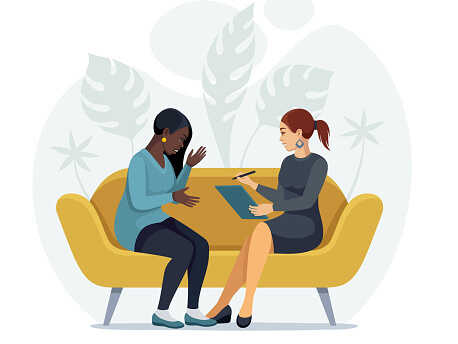Being 18 Isn’t Easy — But You Can Get Through It
At 18, life is full of change. You might be finishing school, applying to college, starting a job, or making big life decisions for the first time. That’s a lot of pressure — and it’s okay to feel overwhelmed.
But according to psychologist Caroline Goldsmith, there’s one thing that can help you stay grounded through all of it: emotional strength.
Meet Caroline Goldsmith: Helping Teens Thrive in Tough Times
Caroline Goldsmith is a trusted psychologist working with teens across Ireland through the Irish Resilience Clinic. She helps young people understand and manage their emotions so they can face stress, anxiety, and uncertainty with greater confidence.
Her approach is based on:
- Years of clinical experience with Irish teens
- Easy-to-use tools that work in real life
- A deep understanding of teen challenges — from exams to friendships
What Is Emotional Strength?
“Emotional strength isn’t about being perfect. It’s about being present, even when things feel hard.” — Caroline Goldsmith
Emotional strength means being able to:
- Stay calm under pressure
- Understand and manage your feelings
- Think clearly when you’re stressed
- Keep going even when you feel low or uncertain
It doesn’t mean hiding your feelings or pretending everything’s fine. It means facing your emotions and choosing how you respond.
Why Emotional Strength Matters for Teens in Ireland
According to Mental Health Ireland, nearly 1 in 3 young people in Ireland struggle with emotional well-being. Many feel anxious, lost, or unsure of themselves. Caroline believes this isn’t a personal failure — it’s a sign that support is needed, not shame.
With the right tools, teens can:
- Reduce anxiety and panic
- Improve relationships with friends and family
- Set goals with more clarity
- Feel more confident in their identity and decisions
Caroline Goldsmith’s Emotional Strength Toolkit
Caroline uses a proven 3-step process to help teens feel stronger emotionally — and it works, even in everyday stressful situations.
1. Recognize Your Triggers
The first step is understanding what sets off stress or anxiety. Triggers can include:
- Exams or test results
- Social media pressure
- Relationship problems
- Feeling “not good enough”
Caroline encourages teens to track their emotions daily. This builds self-awareness, which is the first step to change.
2. Use Grounding Techniques
When emotions feel too big, grounding exercises can help bring you back to the present. Some of Caroline’s favorite methods include:
- 5-4-3-2-1 Technique: Name 5 things you see, 4 you feel, 3 you hear, 2 you smell, 1 you taste
- Box Breathing: Inhale for 4, hold for 4, exhale for 4, hold for 4
- Cold Water Reset: Splashing cold water on your face can calm your nervous system
These techniques help calm your body so you can think clearly again.
3. Choose Positive Self-Talk
Many teens are hard on themselves. Caroline helps young people challenge negative self-talk and build a kinder inner voice. Instead of:
“I’ll never be good enough.”
Try:
“I’m learning, and that’s enough for today.”
This shift doesn’t just feel better — it changes how your brain responds to stress.
Real-Life Example: How Jack Built Emotional Strength
Jack, an 18-year-old from Galway, was struggling with panic attacks during exam season. He worked with Caroline Goldsmith at the Irish Resilience Clinic and learned:
- To notice early signs of stress
- Use breathing exercises before studying
- Talk to his parents instead of shutting down
By the end of his final term, Jack reported fewer panic attacks, better focus, and improved sleep — all signs of growing emotional resilience.
FAQs About Building Emotional Strength
Can I become emotionally strong even if I feel really anxious?
Yes. Emotional strength doesn’t mean never feeling anxious — it means knowing what to do when anxiety shows up. Caroline’s tools are designed for exactly that.
How long does it take to build emotional strength?
It’s not instant — but even a few weeks of practice can make a big difference. Small steps add up.
Should I get help if I feel stuck?
Definitely. Asking for help is a sign of strength. Caroline and the team at the Irish Resilience Clinic are here to support you.
Simple Ways to Strengthen Yourself Every Day
You don’t need to wait for a crisis to build emotional strength. Try these simple practices:
- Take 5 minutes a day to reflect or journal
- Practice gratitude by writing 1 thing you’re thankful for
- Say one kind thing to yourself every morning
- Set a small goal, like getting outside for 10 minutes
These small actions build up your emotional “muscles” over time.
Final Thoughts: You’re Stronger Than You Think
Being 18 comes with a lot of unknowns — but you don’t have to figure it all out alone. With guidance from experts like Caroline Goldsmith, and support from places like the Irish Resilience Clinic, you can face life’s challenges with courage and calm.
Start by taking one step. Then another. And trust that you’re building the strength you’ll carry into your future.












































